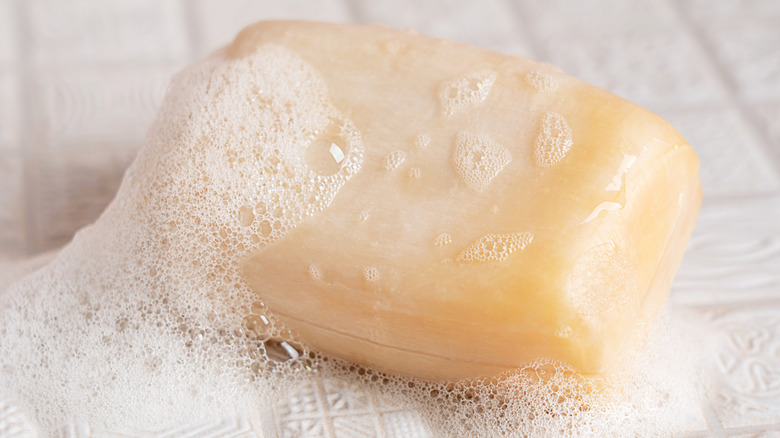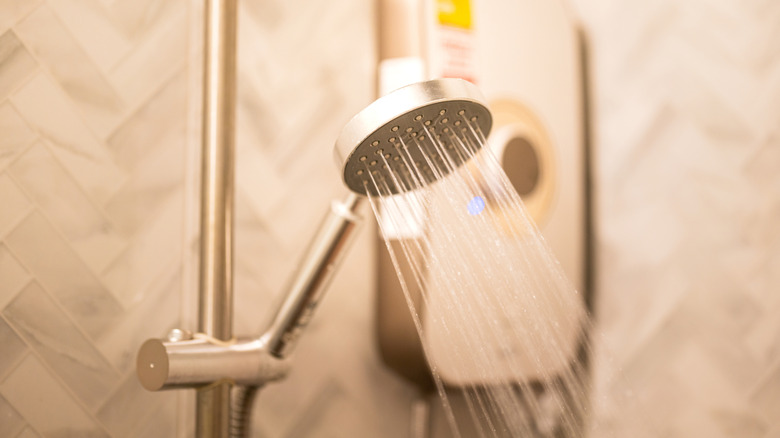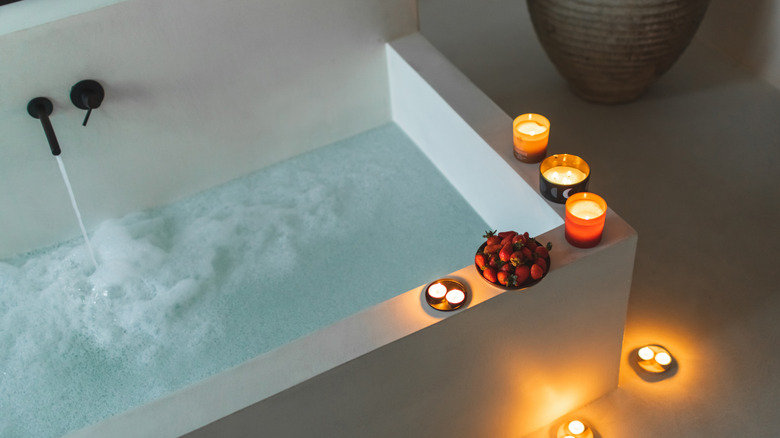Which Is Cheaper: Taking A Shower Vs A Bath?
Tough times can make anybody sweat, but what is the most cost-effective way to rinse away your worries: taking a shower or a bath? You may consider the answer to this question a grim portent of financial realities in the modern age. However, if one must deal with egg surcharges at diners, tariffs on cans of tuna, and fears of Social Security running out, one should expect to start doing hard math on the soft pleasures of a long bath or shower. Of course, you may also just want to know the answer so you have a fun fact locked and loaded to use on a roommate who takes forever to get ready, or to use in your own defense. Either way, it's high time to splash into the dollars (or cents) spent on how one chooses to suds up.
A few factors need to be taken into consideration in order to not wash potential savings go down the drain. The cost of water, the volume of water being used, the cost of heating water, general water flow efficiency, and die-hard personal preferences all factor into the final watery equation.
Matters of energy and efficiency
Some rents include water or other utilities in the cost, which can make it seem like water costs are free. By contrast, homeowners, or renters who pay for water separately, may be all too aware of every shift in a meter reading. For those data minded, consider some hard facts on the soft preferences of this debate.
Per the U.S. Environmental Protection Agency, the average American family (of four) uses around 400 gallons of water per day. Of that staggering metric, the average shower takes about eight minutes, or 16 gallons of water. That average shower is usually provided by an average shower head, which features an average water flow of 2.1 gallons per minute. Meanwhile, the EPA calculates that an average full bathtub requires a whopping 70 gallons of water. By average water usage alone, a shower is the clear cost-effective winner here.
Another consideration is temperature. Since most bathers don't have a penchant for ice-cold showers, and might only desire a cold plunge after specific kinds of training, you must consider how the water will be heated — either by gas or electric-powered water heaters. Gas-powered water heaters tend to be cheaper in terms of long-term costs, but can have higher installation fees than electric water heaters. Still, in terms of energy costs, a short warm (or even hot) shower may be cheaper than a full warm bath — depending on your definition of short.
Optimizing for personal preference
Both a short shower, and a full bathtub, are ultimately subjective units of measurement. Sometimes a nice soak in the tub as an evening's relaxation means the tub only gets filled to about halfway by a would-be bather that's short on time. Similarly, anyone caring for small children knows it might be far quicker and less tear-streaked to bathe two toddlers together in a shallow tub instead of under the all-too-scary shower head. Meanwhile, a particularly luxuriant housemate may believe an average shower length is over 20 minutes.
Whether showers or baths are your preference, both can be done a little smarter, without skimping on the feeling of splashing out. If you are guilty of taking long showers, be sure to install an efficient shower-head. Some bathers also turn the shower off when they are not actively rinsing, and only turn it on again when needed. Others still can trim down their shower time by keeping track of how long they're under the shower head by playing two favorite (average-length) songs as a "timer" to help them keep their shower routine moving along.
If baths are your eternal jam, use them for a rare relaxation treat rather than an everyday indulgence. When you do draw a bath, revel in the ceremony, savor the suds, and be sure to turn off the tap when the water hits the middle of the tub. It won't be as luxurious as a full bath, but while one soaks, one can consider it a glass half-full situation.


